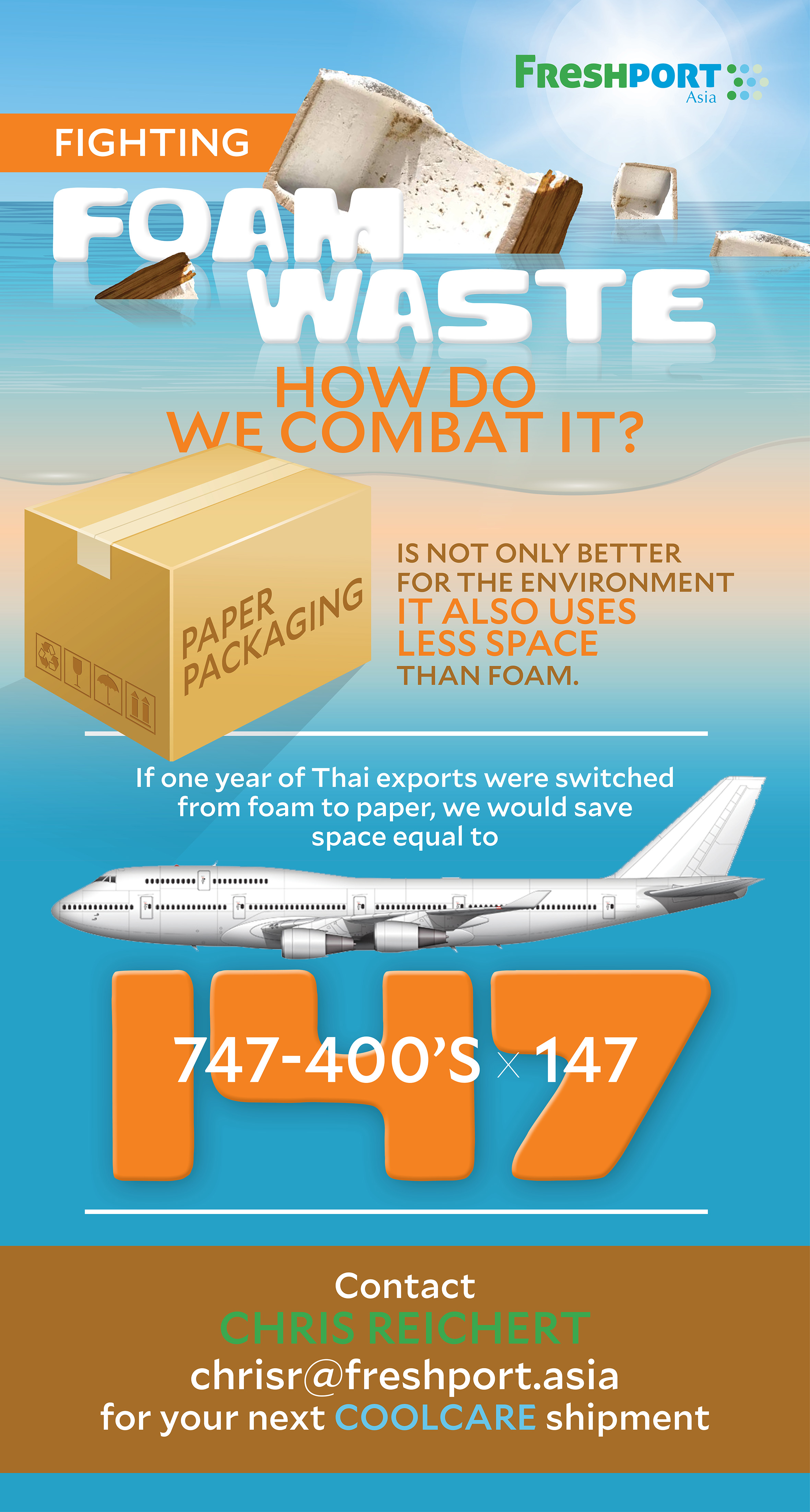The current use of foam and polystyrene for packaging is ubiquitous throughout the airfreight industry. This bulky and wasteful material is often used in shipments because of its cheap availability, suboptimal temperature control ability, as well as it’s slight cushioning and shock absorption for products during shipment.
This short-sided view is leading to too much foam being shipped by air and contributes to this environmentally unfriendly material piling up in landfills and oceans across the world. A lot of shippers regard this type of packaging as a pack and forget solution but they also forget the wider implications it has. While some shipments will be harder than others to stray away from using this material, a large majority of the shipments by air could be using alternative materials.
One of the cheapest and most readily available materials is paper packaging. This packaging is much more environmentally friendly as well as being cheaper than foam in many regards, but to utilize it effectively a shipper must have a good understanding of his supply chain and strict handling processes in place. There are other solutions as well like active refrigeration envirotainer units that while effective are both heavy and expensive to use, leading to many shippers still choosing to use the old standard of foam and gel packs to try and keep shipments cool.
Taking a deeper look at foam material and you’ll see that these solutions are simply not effective, as putting styrofoam boxes in cold rooms is not beneficial as the insulated containers take time to cool down to the right temperature. The bulkiness of the material which is 90% air reduces valuable cargo capacity on aircraft and are an unrecyclable piece of waste on the receiving end, causing additional disposal costs. The use of gel packs which will normally accompany foam boxes are also an unforeseen waste of money, with shippers having to pay the added airfreight charge only to discard them later.
To combat this, a holistic view needs to be taken when evaluating a cool chain. This is easier said than done, but with partners like Freshport Asia and their range of Cool Care services, they are helping to bring best practices and handling processes to customers that can be applied throughout the supply chain. By working together with all partners in the supply chain, true improvements to efficiency can be made which lead to a reduction of costs and risk at each handling step.

Freshport Asia is a leading logistics consultancy company specializing in cool chain. Our core business is operating a specialized airfreight handling service for perishable goods on behalf of BFS Cargo. For more information about our complete range of perishable handling services please contact Chris Reichert at chrisr@freshport.asia on +66 (0) 858034809




Write a Comment